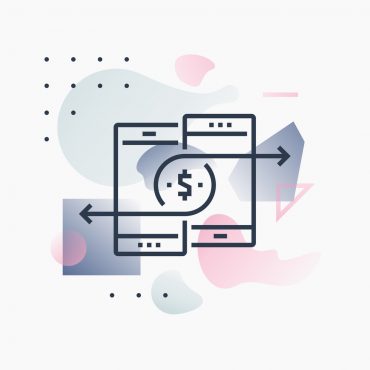
Increasingly, digital technologies, including artificial intelligence and machine learning, are being eyed to help businesses meet their sustainability goals.
Unsustainable business practices are fast becoming unacceptable. With rising consumer awareness and eco-consciousness, businesses need to be intentional with their sustainability efforts. The traditional linear business model has proven to be fragile in the face of supply chain shocks and diminishing resources. If businesses want to survive and thrive in the long-term, they need to make the necessary changes at a core level.
Increasingly, digital technologies, including artificial intelligence (AI) and machine learning, are being eyed to help businesses make their Environmental, Social, and Governance (ESG) targets a reality through data-driven circular models and service-based product delivery and support.
With the world consuming up to 102.3 billion tons of resources each year, the need for change is clear and recent trends in consumer behavior, and rising consumer expectations further attest to this. The unsustainability and fragility of linear models have given rise to a less product-centric and more service-centric mindset, with servitization and circular economy emerging as two key components in corporate green initiatives.
As firms begin to increase investments in servitization and the circular economy, the benefits for both business and the planet are becoming increasingly apparent. However, businesses need to be more than just intentional with their ESG goals. The responsibility for the future of the planet rests firmly on the shoulders of pollutant-heavy industries, and plans need to be made actionable. AI and machine learning technologies can help make these plans a reality through improved traceability and interconnectivity of supply chains and data-driven maintenance analysis.
See also: Tech Aims to Close Circular Economy’s Sustainability Loop
Great expectations: consumers are demanding more than just promises on sustainability
In light of the recent increase in environmental awareness, sustainability has become a major area of contention for businesses. Acclaim for circular business models is growing, not only for its increased revenue streams but also for its promotion of the sustainability solutions that consumers are searching for. Research from Forrester shows that two-thirds of U.S. adults believe that companies are responsible for protecting the environment, and from a revenue-generation perspective, a third of consumers state they are willing to pay more for sustainably produced products. When it comes to reusing and recycling, research has shown that 70% of consumers have or would like to try re-used or recycled products. Businesses that take on these concerns of eco-conscious consumers will be able to gain consumer trust and develop long-term customer relationships that span further than the purchase transaction.
Going circular means sustainable by design
The circular economy is replacing fragile and rigid linear models with a more sustainable and long-term one. Switching to a circular model means sealing monetary leaks in the form of waste in order to get the most out of resources—a process where today’s products become tomorrow’s raw materials.
Research from the Circularity Gap Reporting Initiative (CGRi) uncovered that only 8.6 percent of the world is circular, a decline from the CGRi report published in 2018, which highlighted 9.1 percent. There’s obviously a need for improvement, and the time is ripe for organizations investing in the circular model to thrive by delivering the desired consumer outcome, utilizing product lifecycles, and reducing waste along the way, rather than simply mass-producing products.
Technology has the power to improve productivity, efficiency, and cost savings, while simultaneously reducing product waste and resources—all of which play an important role in circular models to minimize environmental impact. Not only have advancements in AI, digital platforms, and cloud-based solutions enhanced product flow and resource traceability, but they have also increased waste management control and raised liability for companies along the supply chain.
See also: Is the Carbon-Intelligent Data Center on Your Radar?
Future facing: long-term product outlook with servitization
While servitization has initial appeal through increased revenue streams, it also plays a fundamental role in the circular economy model. With servitization, consumers pay for the service and the ownership of the product, while the technology or software remains with the provider, as does the responsibility of the desired outcome, all operating costs, and the delivery of key moments of service. In the traditional model, the design process did not focus on the long-term view or lifecycle of the product, and little consideration was given to extending and improving these areas. Now, with a servitization model, organizations can benefit from a shift in design, and emphasis rests on delivering services on the back of a product for a longer period of time. This is achieved through easier repairs, the recycling and recovery of parts and materials, and closer attention to the design and improvement of low-cost or easily breakable components.
Adopting a circular model requires a whole new perspective, shifting from notions of consumables to durables, from consumers to users. AI-powered tools are designed to help companies offer state-of-the-art maintenance. But to reap the long-term benefits, organizations must be prepared to make investments in modern technologies as adding value and efficiency will be difficult, if not impossible, to achieve without it.
Data-driven is the smartest approach to sustainability
A well-informed green initiative makes for a successful one. Data is at the heart of the circular and servitization approaches to sustainability, enabling successful and accurate implementation to reduce carbon footprints and cut costs. AI-powered tools are essential to this process. Automated decision-making, technician assistance, IoT and predictive maintenance, and resource optimization all have the power to drive this journey and provide the detailed insights that organizations will need for smooth end-to-end maintenance.
Predictive maintenance can assist organizations understand the wants and needs of consumers, better manage product demand, and help when dealing with the complex maze of reverse logistics. When all combined, the optimization of resources can commence, and with the right data, businesses can increase efficiency and productivity.
One key example is in field service, where AI and predictive analytics technology allows organizations to send technicians on the most efficient route with the right products and capabilities to fix the issue. This results in reduced carbon emissions and time spent on the field, as well as fulfillment of client requests the first time around.
The tech is out there ready for action on ESG targets
As pressure builds for businesses to take on responsibility for climate change and cut their carbon emissions and waste, technology will feature more heavily in sustainability projects. AI and machine learning technologies can provide businesses with the data necessary to plan and implement successful sustainability projects, from connecting end-to-end operations to closing the loop on resource waste to improving traceability and aftermarket product maintenance.
The resulting circular and servitization models can deliver extensive business benefits, but they cannot be achieved without substantial change. Here tech-powered tools will enable businesses to turn their ESG targets into reality without impeding business operations, incurring costs, or compromising on customer service.





























